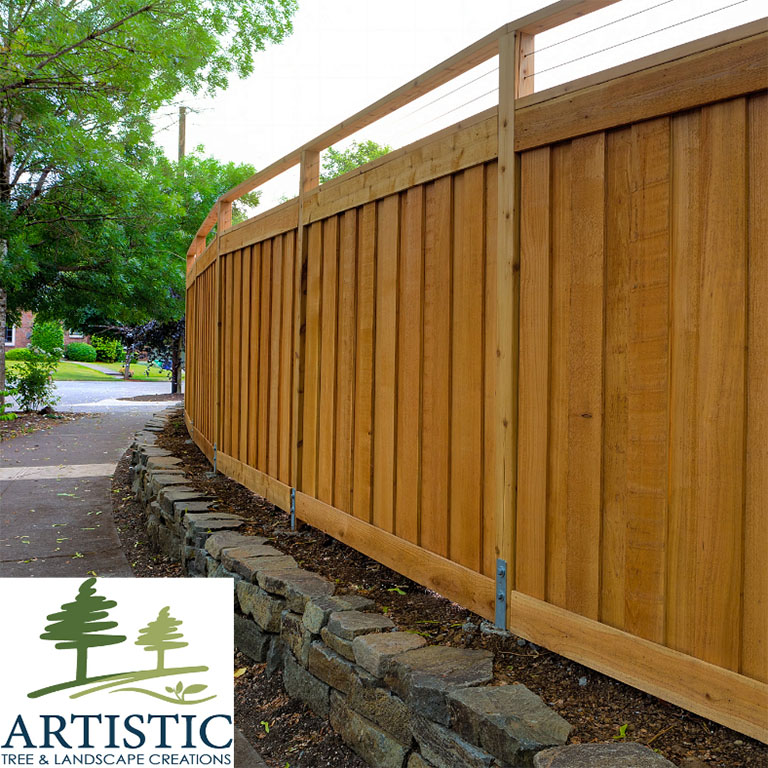All Categories
Featured

When setting up a fencing, choosing the appropriate material is key to stabilizing performance, appearances, and spending plan. Wood, vinyl, and light weight aluminum are among the most frequently picked secure fencing materials, each with its drawbacks and toughness. This guide discovers the advantages and disadvantages of these choices to aid you make an educated choice.

Timber Secure Fencing. Pros:. All-natural Appeal: Wood's ageless appeal can improve any kind of residential or commercial property with its traditional and warm look. Adjustable: You can repaint, tarnish, or carve wood to fit your design preferences. Budget friendly: Wood fence is initially more budget-friendly contrasted to some other products. Environmentally Friendly: As a renewable energy, timber is eco-friendly and frequently thought about environment-friendly. Disadvantages:. Maintenance-Intensive: Normal sealing, painting, or staining is required to stop damages from climate and insects. Prone to Degeneration: Without appropriate treatment, wood can rot, warp, or fracture in time. Much shorter Life-span: Usually, wood fences last 10-15 years, relying on the kind of timber and upkeep. Wood is an excellent alternative for those who value aesthetic appeals and agree to buy routine upkeep to protect its look and toughness.
Vinyl Fencing. Pros:. Low Maintenance: Plastic requires marginal treatment-- simply periodic cleaning with soap and water. Weather Resistant: It doesn't warp, rot, or surrender to insect damage, making it extremely long lasting in various climates. Long life: Plastic fencings can last 20-30 years with little to no fixings. Layout Range: Available in a vast array of styles, structures, and colors, including wood-like appearances. Disadvantages:. Greater Initial Cost: Vinyl fencings are extra costly in advance compared to timber. Vulnerability to Cold: In incredibly winter, plastic can end up being prone and breakable to cracking. Minimal Fixing Options: Matching substitute panels can be testing if damage happens. Plastic secure fencing is ideal for house owners seeking a resilient, low-maintenance remedy that uses modern adaptability.

Light Weight Aluminum Fence. Pros:. Rust-Proof: Aluminum withstands deterioration, making it an exceptional option for damp or damp environments. Sturdy: Regardless of being light-weight, aluminum is strong and can hold up against rough weather. Low Upkeep: It requires minimal upkeep, normally only periodic cleansing. Long Life-span: Light weight aluminum fences can last decades without substantial wear and tear. Elegant Layout: Frequently used for decorative purposes, aluminum secure fencing includes a streamlined, innovative appearance to residential or commercial properties. Disadvantages:. High Preliminary Investment: Aluminum fences are among the costlier alternatives on the marketplace. Less Personal privacy: The open styles typical with aluminum secure fencing don't offer much privacy. Vulnerable to Damages: While long lasting, light weight aluminum can dent if hit with enough pressure. Aluminum is an excellent option for house owners prioritizing looks and resilience without needing much upkeep.
Making Your Decision. When making a decision between wood, plastic, or aluminum fence, consider your concerns:
Wood suits those who value a natural appearance and don't mind putting in upkeep initiative. Plastic is the most effective alternative for those looking for a low-maintenance, weather-resistant remedy. Aluminum supplies streamlined style and resilient toughness but may lack personal privacy. By very carefully assessing these products' functions, you can choose a fencing that enhances your residential property while fulfilling your practical and aesthetic demands.
Latest Posts
Protect Your Home with A-Abel Roofing
Published Jan 20, 25
1 min read
Shake Alley: The Ultimate Exquisite Beverage Spot at FunCity Resort
Published Jan 20, 25
2 min read
Signs You Might Need a Vision Testing Quickly
Published Jan 19, 25
0 min read